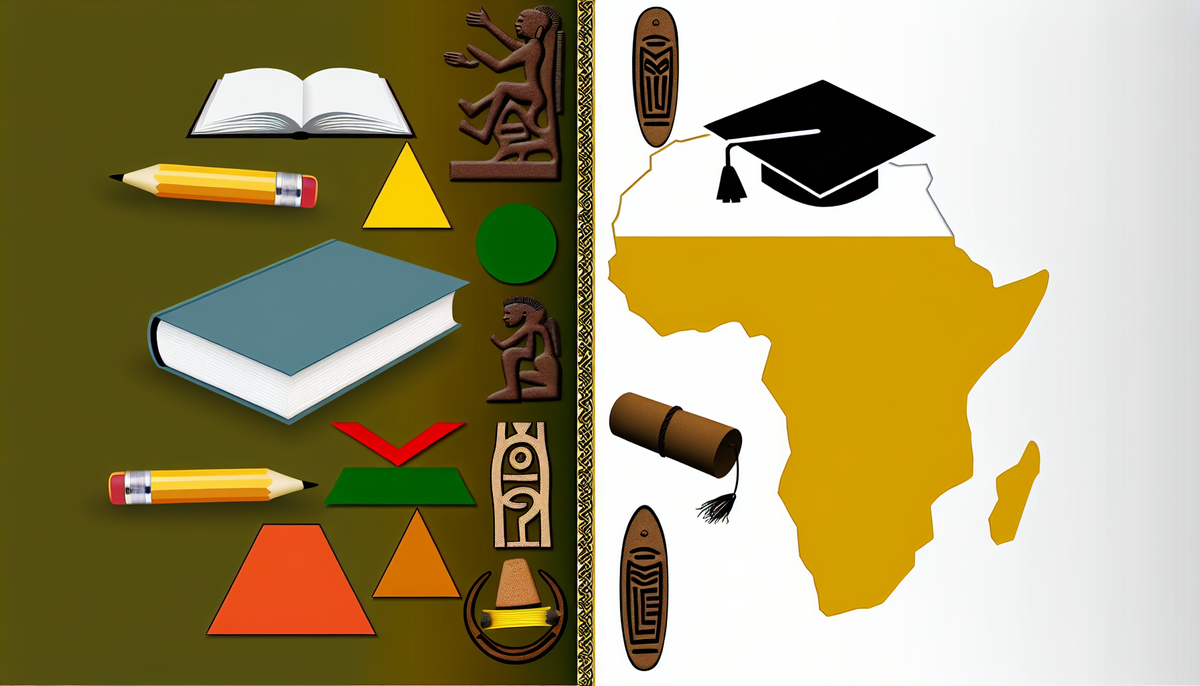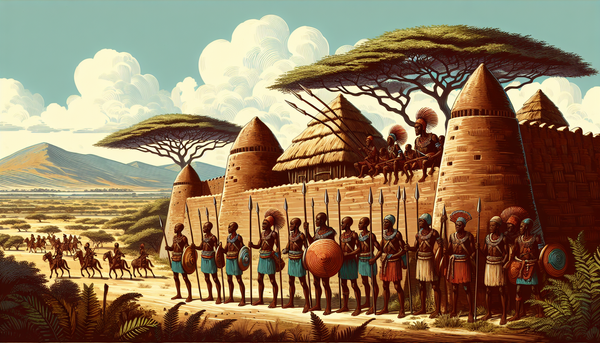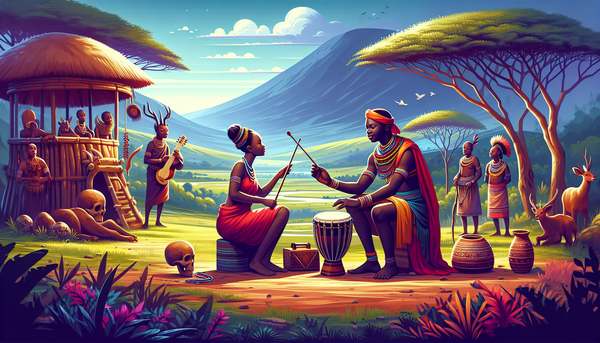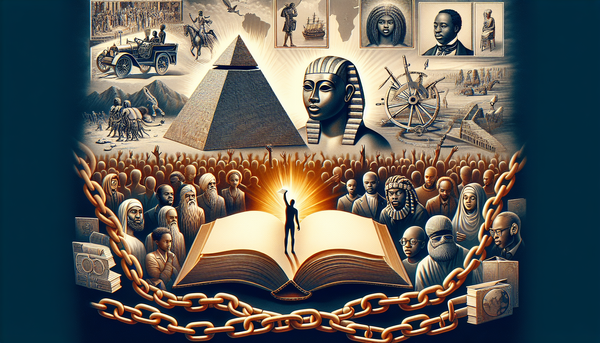## Introduction: Overview of African Education Before Colonial Influence
Before the onset of colonialism, Africa boasted a rich tapestry of educational traditions that varied significantly across its diverse cultures and regions. Education was primarily informal, transmitted within the family unit and through community interactions. Knowledge included the passing down of oral histories, cultural practices, and practical skills essential for survival in various environments.
In many societies, elder members played a crucial role as educators, imparting wisdom and societal values to younger generations. This grassroots approach to learning emphasized communal participation, with adults actively engaging children in daily activities, storytelling, and rituals. Subjects such as agriculture, hunting, craftsmanship, and interpersonal skills formed the core curriculum, tailored to local needs and environments.
Religious institutions, particularly among various indigenous beliefs, also contributed significantly to educational practices. Initiation ceremonies and traditional rites of passage often included teaching elements about societal roles and responsibilities. Overall, African education systems before colonial influence were holistic, integrating moral, social, and practical dimensions, laying a strong foundation for community identity and continuity. This rich legacy would be dramatically transformed with the arrival of European colonial powers, leading to a profound shift in educational paradigms across the continent.
## Indigenous Learning Methods Across Different Regions
Indigenous learning methods in Africa were as diverse as the continent’s myriad cultures, reflecting the unique historical, social, and environmental contexts of different regions. In West Africa, for instance, learning was often conducted through storytelling, where oral traditions served as a means to pass down knowledge about history, morality, and ethics. Griots, or storytellers, played a pivotal role in preserving cultural heritage, serving as both educators and historians.
In East Africa, community-based education was common among pastoralist societies. Knowledge of animal husbandry, navigation, and seasonal migration patterns was shared through direct experience and participation. Young individuals learned by observing and assisting elders, helping them to acquire skills necessary for survival within their specific environments.
Southern Africa also showcased innovative indigenous learning methods, such as the use of initiation schools. These institutions were vital for teaching cultural norms, social responsibilities, and practical skills through a blend of mentorship and communal activities.
In North Africa, the influence of Islamic scholarship introduced another layer, integrating religious teachings with mathematics and science, often conducted in madrasas. Thus, indigenous learning methods across Africa were characterized by experiential, communal, and culturally grounded approaches, fostering a deep sense of identity and belonging within diverse communities.
## Missionary and Colonial Impact on Educational Infrastructure
The arrival of European missionaries and colonial powers in Africa in the 19th century marked a significant turning point in the continent's educational landscape. Missionaries, motivated by both religious zeal and benevolence, established schools throughout Africa, aiming to convert locals to Christianity while providing formal education. They often built the first schools, introducing Western curricula that centered on reading, writing, and arithmetic, alongside vocational training.
These institutions significantly altered the existing educational infrastructure. While they provided access to literacy and new skills, missionary schools were often exclusive, serving primarily those who adhered to Christian beliefs, thus marginalizing indigenous educational practices. The curricula taught were not only Eurocentric but frequently denigrated local cultures, leading to the erosion of traditional knowledge systems.
Colonial administrations, recognizing the importance of education for governance, also expanded educational efforts. They established a network of schools that aimed to produce a class of educated individuals who could assist in administering colonial rule. However, these systems often perpetuated inequalities, prioritizing the education of a small elite while neglecting the majority of the population.
Ultimately, the combined efforts of missionaries and colonial regimes reshaped African education, creating a complex legacy that intertwined oppression and opportunity, drastically transforming societies across the continent.
## Adaptation and Resistance: Local Responses to Colonial Education
As colonial education systems took root in Africa, local communities employed a variety of strategies to adapt to and resist these changes. While many recognized the potential benefits of Western education, they also perceived the threat it posed to traditional values and cultural identities. Local responses varied widely, reflecting the diverse social and political environments across the continent.
Some communities embraced colonial education, viewing it as a pathway to upward mobility and a means to negotiate power within the colonial framework. Educated Africans began to take on roles as intermediaries, often securing positions within colonial administrations or missionary schools, thus attempting to influence policies from within. This engagement led to the gradual emergence of a new educated elite who sought to promote local interests.
Conversely, numerous groups actively resisted the imposition of colonial education, viewing it as a tool of cultural imperialism. They creatively integrated traditional knowledge and practices into the colonial curriculum, striving to maintain their identities and values in the face of assimilation. Cultural preservation movements, such as the establishment of independent schools and the revitalization of indigenous languages, emerged as acts of defiance against colonial educational policies. This duality of adaptation and resistance played a crucial role in shaping the future of African education systems.
## Post-Colonial Evolution of Educational Systems
The post-colonial era in Africa witnessed significant transformations in educational systems as newly independent nations sought to redefine their identities and priorities. Following the end of colonial rule, many African governments recognized the need to create inclusive educational frameworks that reflected indigenous values, cultures, and languages. The focus shifted from a predominantly Eurocentric curriculum to one that embraced local history, traditions, and knowledge systems.
Several countries implemented reforms aimed at increasing access to education for all citizens, especially marginalized and rural communities. This included expanding infrastructure, establishing more schools, and promoting education for girls. National policies often aimed to eliminate the disparities created by colonial systems and encourage involvement from local communities in the educational process.
However, despite these advancements, post-colonial educational systems faced numerous challenges, including insufficient funding, high dropout rates, and the need for qualified teachers. Some nations also grappled with the legacies of colonial curricula and the language of instruction, which sometimes hindered effective learning. Additionally, global influences and the adoption of international curricula in some regions led to debates around the preservation of indigenous knowledge versus modernization. Overall, the evolution of educational systems in post-colonial Africa reflects a complex interplay of aspirations, challenges, and ongoing negotiations between tradition and modernity.
## Modern Challenges and Reforms in African Education
In contemporary Africa, educational systems continue to face significant challenges that hinder access to quality education for all. Rapid population growth has led to increased demand for educational institutions, often outpacing the development of infrastructure and resources. Many schools grapple with overcrowded classrooms, inadequate facilities, and a shortage of trained teachers, which directly impact the quality of education provided.
Additionally, socio-economic factors such as poverty, gender inequality, and conflict further exacerbate educational disparities. In many regions, young girls face barriers to education due to cultural norms or economic constraints, leading to lower enrollment and higher dropout rates. Displacement caused by conflicts and environmental issues also disrupt access to education, leaving vulnerable populations without consistent learning opportunities.
In response to these challenges, various reforms have emerged across the continent. Governments, non-governmental organizations, and international partners are working to implement policies aimed at increasing access and improving educational quality. Initiatives include promoting inclusive education, enhancing teacher training, and integrating technology into classrooms. Furthermore, there is a growing emphasis on curriculum reform that incorporates local languages and culturally relevant content. These efforts reflect a commitment to creating an equitable and effective educational landscape that meets the needs of all African learners in the 21st century.
## Conclusion: Legacy and Future Directions in African Learning
The legacy of education in Africa is marked by a rich tapestry of indigenous knowledge systems interwoven with the influences of colonialism and globalization. Historically, African learning has emphasized community, oral traditions, and cultural relevance. While colonial education systems disrupted these practices, they also sparked a series of adaptations and resistances that underscore the resilience of local communities.
As the continent moves forward, the future directions in African learning must strive to honor this diversity while addressing contemporary challenges. Emphasizing inclusive and equitable education is critical, ensuring marginalized groups, particularly girls and rural populations, have access to quality learning opportunities. Furthermore, integrating technology in education offers promising avenues for expanding access and improving educational outcomes, especially in remote areas.
Future educational reforms should also focus on a curriculum that balances modern subjects with indigenous knowledge, fostering a sense of identity and cultural pride among students. Collaborations among governments, communities, and international organizations can drive sustainable improvements, paving the way for a more empowered and educated generation. Ultimately, the legacy of African learning can serve as a foundation for a brighter future, one that respects cultural heritage while embracing innovation and global interconnectedness.




